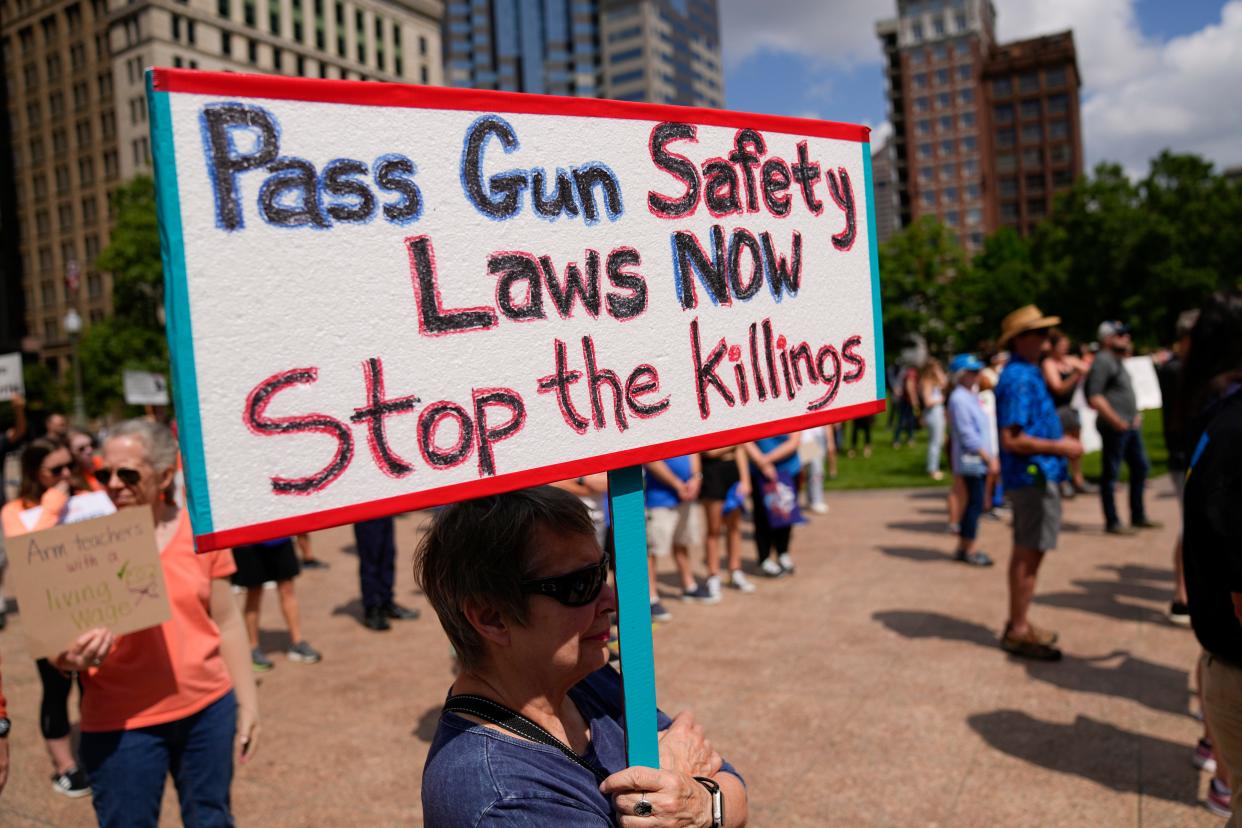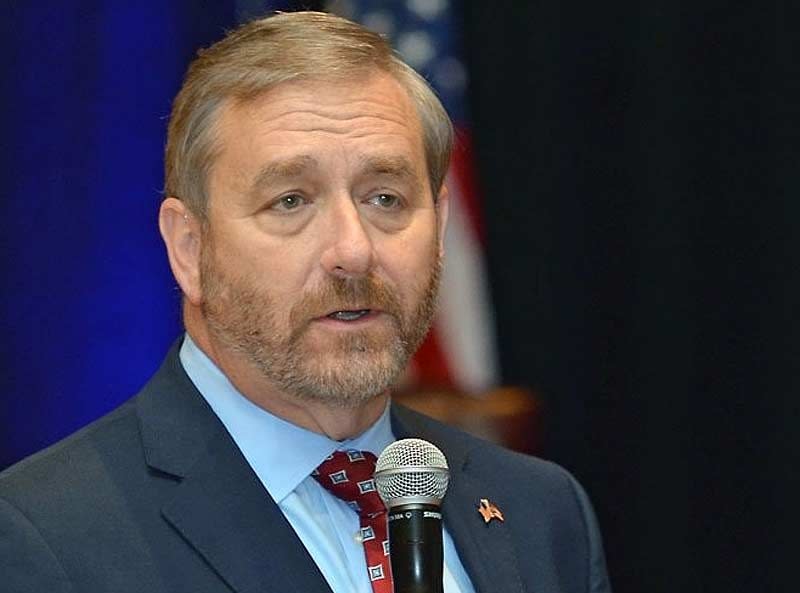Ohio preemption law must fall if cities want local gun restrictions | Theodore Decker

- Oops!Something went wrong.Please try again later.
Columbus is likely to lose its escalating legal contest with the state over the city's proposed gun control restrictions.
That means if Columbus — or any Ohio community for that matter — wants the power to set its own local legislative agenda regarding firearms, victory probably won't come by fighting against the state's so-called preemption law, but by seeking instead to overturn it.
That was the alternate path cut by the residents of Colorado last year, and it is the one that holds the most promise for municipalities hoping to exercise the idea of "home rule" when it comes to gun control, said Andrew Willinger, executive director of the Duke Center for Firearms Law at Duke University's School of Law in North Carolina.
Willinger is among the Second Amendment legal experts who have been watching as Columbus City Attorney Zach Klein tries to implement a number of local restrictions on firearms while enforcing their safe handling.

The latest twist in the case came last week, when a Fairfield County judge granted Ohio Attorney General Dave Yost's request to halt the city's newly enacted gun restrictions with a 14-day temporary order.
Following the issuance of the order, Yost said Columbus "has knowingly and deliberately overstepped its legislative authority."
Klein, meanwhile, accused Yost of "judge shopping" by filing his objection to the city's restrictions in more rural, more Republican Fairfield County.
Klein's office for several years has pursued legal action in neighboring Franklin County, questioning the validity of the state's preemption law. There, Common Pleas Judge Stephen. L. McIntosh ruled on Nov. 2 that he found to be unconstitutional a portion of a state law that banned local governments from creating new gun restrictions.
The judge ruled that the state had, in part, infringed on cities' "home rule" powers granted under the state constitution.
Yost appealed the decision, and on Nov. 10, McIntosh delayed his own order so the matter could be reviewed by a higher court.

Yet the city forged on with its plan, passing legislation that would ban large-capacity magazines, require safe gun storage and criminalize the gift or sale of firearms in scenarios that the city says are not covered by existing state and federal laws. That is what prompted Yost to head to Fairfield County.
Theodore Decker:At Columbus gun law hearing, a disappointing turnout, but promise too
Willinger predicts the back-and-forth will not end in the way Columbus officials hope. That's because the courts consistently have sided with states and their preemption laws, not with the local municipalities that decide to push back.
"I'm pretty dubious that legal challenges to these laws will bear much fruit," Willinger said. "Those laws have generally been upheld."
Only a handful of states now allow local governments to pass gun ordinances that are more restrictive than state laws. Ohio is not among them.
Until the 1970s, the opposite was true. Preemption laws soared in popularity only after an Illinois community enacted the first municipal handgun ban in the U.S. in 1981.
Much more recently, some states have been strengthening their preemption laws by spelling out significant punishments for municipalities that buck them, Willinger said.
"They make the consequences so punitive, the risk is just too high" for local municipalities to bother, Willinger said. "You may not even want to go down that route."
The citizens of Colorado took a different tack in 2021. After a string of mass shootings galvanized public opinion, voters agreed last year to repeal the state's preemption law.
"If there's a critical mass of public opinion ... if you get to that level, then maybe rolling these (preemption laws) back or repealing them may be a possibility," Willinger said.
The question that maybe no Ohioan wants answered is this: What will it take for us to reach that point?
Theodore Decker is the Dispatch metro columnist.
tdecker@dispatch.com
@Theodore_Decker
This article originally appeared on The Columbus Dispatch: Ohio firearms law: Courts unlikely to side with Columbus gun control

